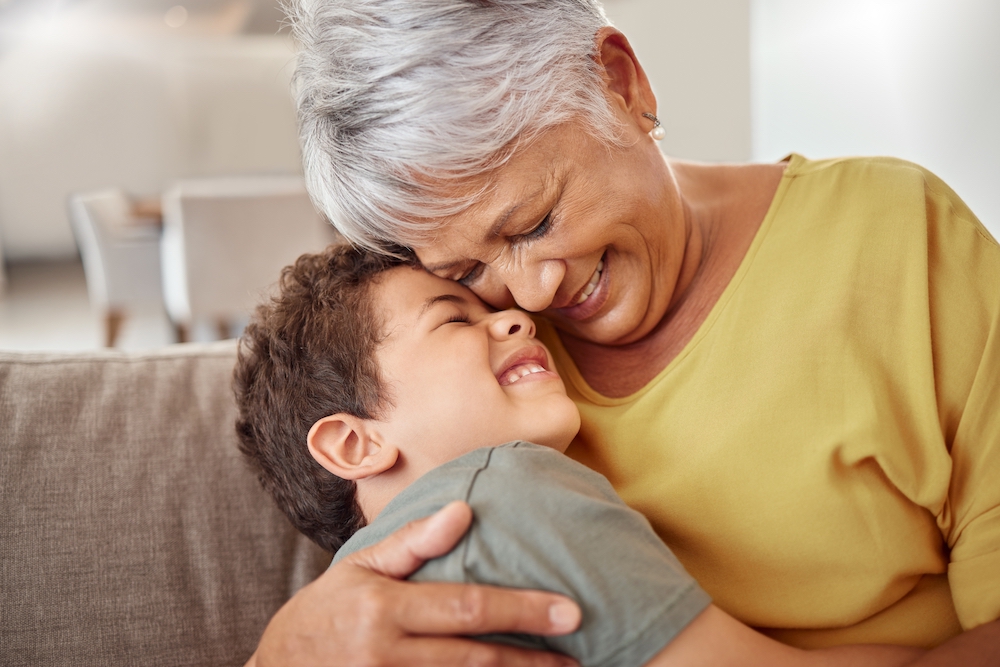When a senior loved one is diagnosed with dementia or Alzheimer’s, it is a big shock to the rest of the family. While the family may have realized that something wasn’t quite right with their loved one for quite a while, having the official diagnosis can be something that’s really hard to swallow. Your loved one’s forgetfulness can no longer be passed off as a common sign of aging; instead, it has a real name with real symptoms that are only going to get progressively worse as your senior loved one ages.
This kind of diagnosis is hard enough to come to terms with as an adult, but children who don’t always understand the implications may struggle with it even more. This is especially true if their beloved grandparent, who has lived with them for many years, or has lived just down the street, now is moving into a memory care community like Astoria’s dementia care in Omaha, NE. That doesn’t mean that it isn’t important to discuss this with your child though. While children may not understand the finer details of what’s going on, they still need to be informed.
If you’re planning on telling your child about your loved one’s Alzheimer’s or dementia diagnosis, here are some tips that you might want to keep in mind:
Why You Should Explain Your Loved One’s Dementia Diagnosis to Your Children
While you may not believe that explaining this diagnosis to your children is a good thing, it will help a lot in the long run. This is especially important with a dementia or Alzheimer’s diagnosis because there is no cure, and their loved one is only going to get worse over time. Explaining to your children early enough, while their loved one is still in the early stages of the disease, and may be able to also help explain, will set the precedent for their understanding later on.
Starting out with an explanation will also allow you to better explain the symptoms as they appear. For example, the first time that your loved one forgets your child’s name can be explained as a symptom of the disease. Because they know about the disease already, they won’t think that it’s because their loved one doesn’t love them anymore, or any other plethora of reasons that children may come up with. It gives you a starting off point for when your children experience those symptoms for themselves.
Anticipate Questions, and Answer Them Simply and Honestly
Children are naturally curious, and you should anticipate that when you explain your loved ones’ diagnosis to them, they are going to come locked and loaded with more questions than you can handle. One way for you to help manage those questions is to anticipate what they’re going to ask.
For example, a younger child may ask if their loved one is going to get better. They’re used to having people get better when they get sick and they may not be able to understand that there is a type of sickness that you can’t get better from. Older children may want to understand the timeline or the symptoms as the disease progresses so that they are aware of what will happen in the future.
Be prepared to answer those questions succinctly and honestly. You shouldn’t try to sugarcoat it. Alzheimer’s and dementia are diseases that can feel ugly. You should let your children know exactly what to anticipate in the future.
Help Them Understand Their Feelings Are Normal
Many children may find themselves feeling overwhelmed with emotions. Those emotions could be anything from anger to sadness, and some children may even feel guilt about the situation. No matter what their feelings are, you should explain to your child that what they’re feeling is okay. Having something like dementia or Alzheimer’s affect your family is something that everybody is going to struggle with, and your child feeling overwhelmed by the situation is completely normal.
Support them in their feelings. Let them cry if they need to. Let them yell and be angry if they need to. There are a lot of big feelings involved for such little people, and sometimes they just need to get it out. Being supportive is the best way that they’ll be able to manage those emotions.

Encourage Older Children to Talk to a Counselor
Older children are likely to struggle with an Alzheimer’s diagnosis more than a younger child, because an older child can more fully understand the implications of what’s happening. This is why it might not be a bad idea to encourage your older child to speak to a counselor or a professional, either some kind of therapist, or maybe even a professional regarding dementia, and Alzheimer’s care.
Our staff here at our dementia care in Omaha, NE would be happy to talk to your child about what’s going on in their loved ones’ lives. Because this is our specialty, we see many families come in and out who don’t quite understand the full implications of what their loved one is going through. If your child has questions that you don’t feel like you can answer, we are happy to try and answer any questions that they may have.
Astoria’s Alzheimer’s and Dementia Care in Omaha, NE
Having a loved one, diagnosed with Alzheimer’s or dementia is something that all families struggle with. It is not an easy diagnosis to handle, and it is not something that families are prepared to go through. That’s why places like Astoria’s dementia care in Omaha, NE are so important. We understand how to best care for your loved one and can help to ease some of the burden that an Alzheimer’s or dementia diagnosis brings.
If you are interested in seeing how Astoria’s dementia care in Omaha can help you and your family, contact us today for a tour and for more information.


